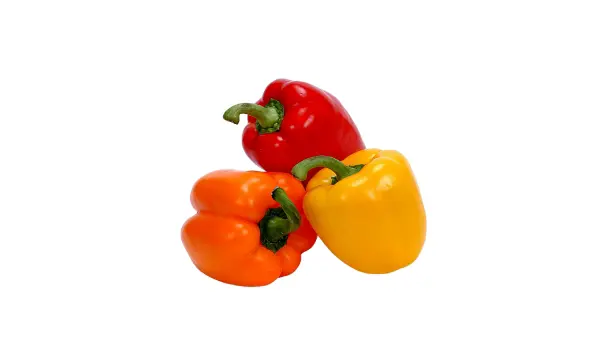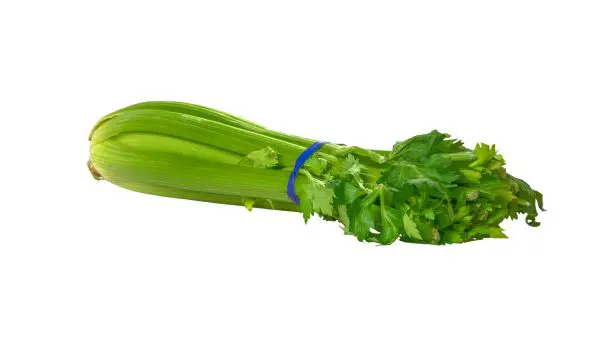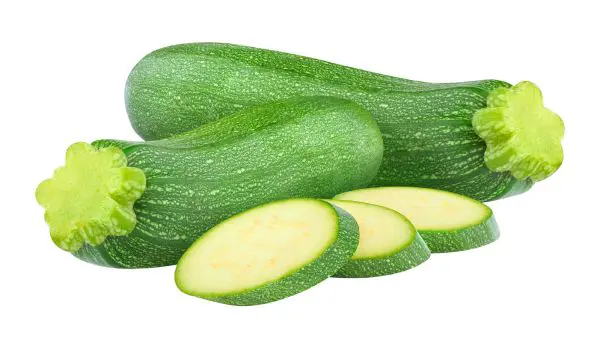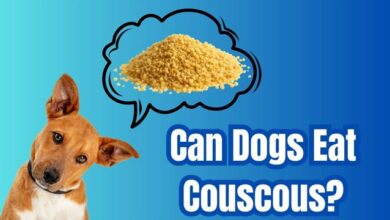
Introducing vegetables into your dog’s diet can enhance their nutrition, but it’s important to know: what vegetables are good for dogs? While many veggies are safe and beneficial, others can be harmful or even toxic.
In this article, we’ve provided a comprehensive list of safe vegetables for dogs, detailing their benefits and guidelines for proper preparation. Introducing these vegetables into your dog’s diet can enhance their nutrition and overall health. Remember to always consult your veterinarian before making significant changes to your pet’s diet.
Key Takeaways:
– Many vegetables are safe for dogs when prepared correctly.
– Some vegetables, like onions and wild mushrooms, can be toxic to dogs.
– Vegetables are commonly included in commercial dog foods due to their health benefits.
Preparation Tips:
– Wash Thoroughly: Clean all vegetables to remove pesticides and contaminants.
– Serve Plain: Avoid adding salt, butter, spices, or oils.
– Cut Appropriately: Slice vegetables into bite-sized pieces suitable for your dog’s size to prevent choking.
Below is a list of nutritious and safe vegetables for dogs that provide numerous health benefits.
1. Bell Peppers

Bell peppers are a nutritious and safe vegetable for dogs, offering numerous health benefits. Red bell peppers, in particular, are the most nutrient-dense variety, containing high levels of vitamins A, C, and E. They are rich in antioxidants like beta-carotene, which supports eye health, skin, and coat vitality. Additionally, their anti-inflammatory properties make them ideal for dogs suffering from arthritis or other joint issues. Bell peppers also contain phytochemicals and carotenoids that boost immune function and combat aging effects. To serve them safely, remove stems and seeds, and offer them raw or steamed without seasonings. Moderation is key to avoid digestive upset.
2. Beets
Beets are an excellent addition to a dog’s diet due to their high fiber content and essential nutrients like folate, manganese, potassium, and vitamin C. These nutrients support healthy digestion, boost the immune system, and promote a shiny coat. Beets also contain antioxidants that help combat inflammation and oxidative stress in dogs. However, they should be served cooked and plain to avoid any digestive issues caused by their natural sugars. Introduce beets gradually into your dog’s diet to ensure they tolerate them well. Always consult your veterinarian before adding new foods to your dog’s meal plan.
3. Broccoli
Broccoli is a nutrient-rich vegetable that provides dogs with fiber, vitamins C and K, and powerful antioxidants. It supports healthy digestion, strengthens the immune system, and contributes to bone health. Broccoli also contains sulforaphane, a compound known for its anti-cancer properties. While broccoli is safe for dogs in small amounts, excessive consumption can cause gas or digestive discomfort due to its isothiocyanate content. To prepare broccoli for your dog, steam or boil it without seasoning. Serve it as an occasional treat rather than a staple food to ensure your dog receives balanced nutrition.
4. Brussels Sprouts
Brussels sprouts are packed with fiber, vitamins A, B6, C, and K, as well as antioxidants that contribute to overall health in dogs. Their anti-inflammatory properties make them particularly beneficial for older dogs or those with joint issues. However, they can cause gas if consumed in large quantities due to their sulfur content. To prepare Brussels sprouts for dogs, steam or boil them until soft but avoid adding seasonings like salt or butter. Serve them in moderation as part of a balanced diet to provide your dog with essential nutrients while avoiding digestive problems.
5. Butternut Squash
Butternut squash is a highly nutritious vegetable for dogs, rich in vitamin A, vitamin C, fiber, and antioxidants. It supports immune function, promotes healthy skin and coat, and aids digestion. The natural sweetness of butternut squash makes it appealing to most dogs when cooked properly. Always serve it cooked—either steamed or baked—and plain without seasonings or additives like butter. Remove the seeds and skin before feeding it to your dog to ensure safety. Introduce it gradually into their diet for optimal tolerance and consult your veterinarian if you have concerns about portion sizes.
6. Cabbage
Cabbage is a low-calorie vegetable loaded with fiber and vitamins C and K that can benefit dogs in moderation. Its antioxidant properties help combat inflammation and support overall health. However, raw cabbage contains compounds that may interfere with thyroid function if consumed excessively over time. To make cabbage safe for your dog’s consumption, cook it lightly by steaming or boiling without seasoning. This reduces potential digestive discomfort while preserving its nutritional value. As with all vegetables introduced into a dog’s diet, serve cabbage occasionally rather than daily to maintain balance.
7. Carrots
Carrots are one of the best vegetables for dogs due to their crunchy texture and high nutritional value. They are rich in beta-carotene (a precursor to vitamin A), which supports vision health and promotes a shiny coat. Carrots also contain fiber that aids digestion and helps maintain healthy bowel movements. Dogs can enjoy carrots raw as a chewable snack or cooked for easier digestion—both options are safe when served plain without additives like salt or butter. Cut carrots into small pieces to prevent choking hazards for smaller breeds.
8. Cauliflower
Cauliflower is another excellent vegetable option for dogs due to its high fiber content and abundance of vitamins C and K. It supports digestive health while providing antioxidants that help reduce inflammation in the body. Cauliflower should be served cooked—steamed or boiled—to make it easier for dogs to digest without causing excessive gas or discomfort from its sulfur compounds. Avoid adding seasonings or oils when preparing cauliflower for your pet.
9. Celery

Celery is a hydrating vegetable with low calories that makes an excellent treat for dogs trying to maintain a healthy weight. It contains vitamins A, B6, C, K as well as potassium—all essential nutrients that support heart health and freshen breath naturally due to its crunchy texture. Celery should be cut into small pieces before serving raw or lightly steamed; this prevents choking hazards while ensuring easy digestion.
10. Cucumber
Cucumbers are an excellent snack for dogs, especially during hot weather, due to their high water content and hydrating properties. They are low in calories, making them ideal for overweight dogs or those on calorie-restricted diets. Cucumbers contain small amounts of vitamins K and B, as well as potassium, which contribute to bone health and muscle function. Their crunchiness makes them a fun treat for dogs to chew on, promoting dental health. To serve cucumbers safely, slice them into thin pieces or small chunks to avoid choking hazards. Always offer plain cucumber without added salt or seasoning.
11. Green Beans
Green beans are a nutritious and low-calorie vegetable that is easy for dogs to digest. They are packed with vitamins such as A, C, and K, along with essential minerals like iron and calcium. Green beans also contain fiber, which supports healthy digestion and helps regulate bowel movements. They can be served raw, steamed, or boiled but should be plain—free from seasonings or oils. Green beans make an excellent snack for dogs trying to maintain a healthy weight or those with sensitive stomachs. Introduce them gradually into your dog’s diet to ensure they tolerate them well.
12. Lettuce
Lettuce is a safe and low-calorie vegetable that can be given to dogs in moderation. It is high in fiber and water content, which helps keep dogs hydrated while supporting healthy digestion. Lettuce varieties like romaine or iceberg are particularly good options due to their mild flavor. While lettuce doesn’t offer significant nutritional benefits compared to other vegetables, it can be a crunchy and refreshing treat for dogs on hot days. Chop lettuce into small pieces to make it easier for your dog to chew and digest. Avoid adding dressing or seasoning when serving lettuce.
13. Peas
Peas are a nutrient-rich vegetable that provides several health benefits for dogs. They are packed with vitamins A, C, and K, along with minerals like iron and potassium. These nutrients support bone health, immune function, and overall vitality. Peas also contain fiber, which aids digestion and helps regulate blood sugar levels. Dogs can enjoy peas raw or cooked as part of their meals or as a standalone treat. However, avoid canned peas with added salt or preservatives. Introduce peas gradually into your dog’s diet to monitor tolerance and prevent overconsumption.
14. Pumpkin
Pumpkin is a highly beneficial vegetable for dogs due to its high fiber content and digestive-supporting properties. It is rich in vitamins A and C, as well as antioxidants that promote immune health and skin vitality. Pumpkin is particularly effective in soothing digestive issues such as diarrhea or constipation by regulating bowel movements. Always serve cooked pumpkin—either steamed or baked—and plain without added sugar or spices like cinnamon. Avoid canned pumpkin pie filling that contains additives harmful to dogs. Introduce pumpkin gradually into your dog’s diet for optimal results.
15. Spinach
Spinach is a leafy green vegetable that offers several health benefits when fed in small amounts to dogs. It contains iron, calcium, magnesium, and vitamins A, C, E, and K—all of which contribute to bone health, immune function, and overall well-being. However, spinach also contains oxalates that can interfere with calcium absorption if consumed in large quantities over time. To minimize risks, serve spinach cooked (steamed or boiled) without seasoning and limit portions to occasional treats rather than daily meals.
16. Sweet Potatoes
Sweet potatoes are an excellent source of fiber and vitamin A for dogs. Fiber helps maintain healthy digestion while vitamin A supports vision health and immune function. Sweet potatoes should always be cooked before serving—steaming or baking ensures they are soft enough for easy digestion while preserving their nutritional value. Remove the skin before feeding sweet potatoes to your dog as it may be difficult to digest. Avoid adding butter, sugar, or spices when preparing sweet potatoes for your pet.
17. Zucchini

Zucchini is a low-calorie vegetable rich in fiber and antioxidants that support digestive health and combat inflammation in dogs. It also contains vitamins A, C, B6, and potassium—all essential nutrients for maintaining healthy bones, muscles, and immune function. Zucchini can be served raw or cooked (steamed or boiled) but should always be plain without added seasonings or oils. Slice zucchini into small pieces before serving to prevent choking hazards for smaller breeds. As with all vegetables introduced into your dog’s diet, moderation is key!
FAQS.
What vegetables are safe for dogs to eat?
Dogs can safely eat carrots, green beans, pumpkin, and sweet potatoes. Always check with your vet before introducing new foods.
Can I feed my dog raw vegetables, or should they be cooked?
Some vegetables like carrots and zucchini can be fed raw, but others like sweet potatoes should be cooked for easier digestion.
Are there any vegetables that are toxic to dogs?
Yes, onions, garlic, and wild mushrooms are toxic to dogs. Avoid these at all costs.
How should I prepare vegetables for my dog?
Prepare vegetables by steaming or boiling without seasonings. Cut them into small pieces to prevent choking.
Can vegetables replace meat in my dog’s diet?
No, vegetables cannot replace meat entirely as dogs require protein from animal sources for optimal health.
How much vegetable should I include in my dog’s daily meals?
Include vegetables in your dog’s meals, but keep them to 10-20% of their daily diet. Ensure they are bite-sized and free from harmful seasonings or additives to maintain a balanced and safe diet for your pet.
Are canned vegetables safe for dogs?
Canned vegetables are safe if low-sodium and plain, but fresh or frozen options are healthier due to lower salt content.
Can puppies eat the same vegetables as adult dogs?
Yes, but introduce them gradually and in small amounts to monitor tolerance and digestion.
Are there any vegetables that can help with my dog’s digestion?
Yes, pumpkin and sweet potatoes are beneficial for digestive health due to their high fiber content.
Should I consult my veterinarian before adding vegetables to my dog’s diet?
Yes, always consult your vet before adding new foods to ensure they are safe and suitable for your dog’s specific needs.
Vegetables to Avoid
- Rhubarb: Contains oxalates, which can cause kidney issues. Do not feed rhubarb to your dog.
- Onions and Garlic: Belonging to the Allium family, they can cause severe anemia in dogs.
- Wild Mushrooms: Some varieties are toxic and can cause severe reactions. Always avoid feeding wild mushrooms.
- Raw Potatoes and Green Potato Skins: Contain solanine, which is toxic to dogs. Always cook potatoes thoroughly and remove skins.
- Avocado: Contains persin, which is toxic to dogs. Avoid all parts of the avocado plant.



